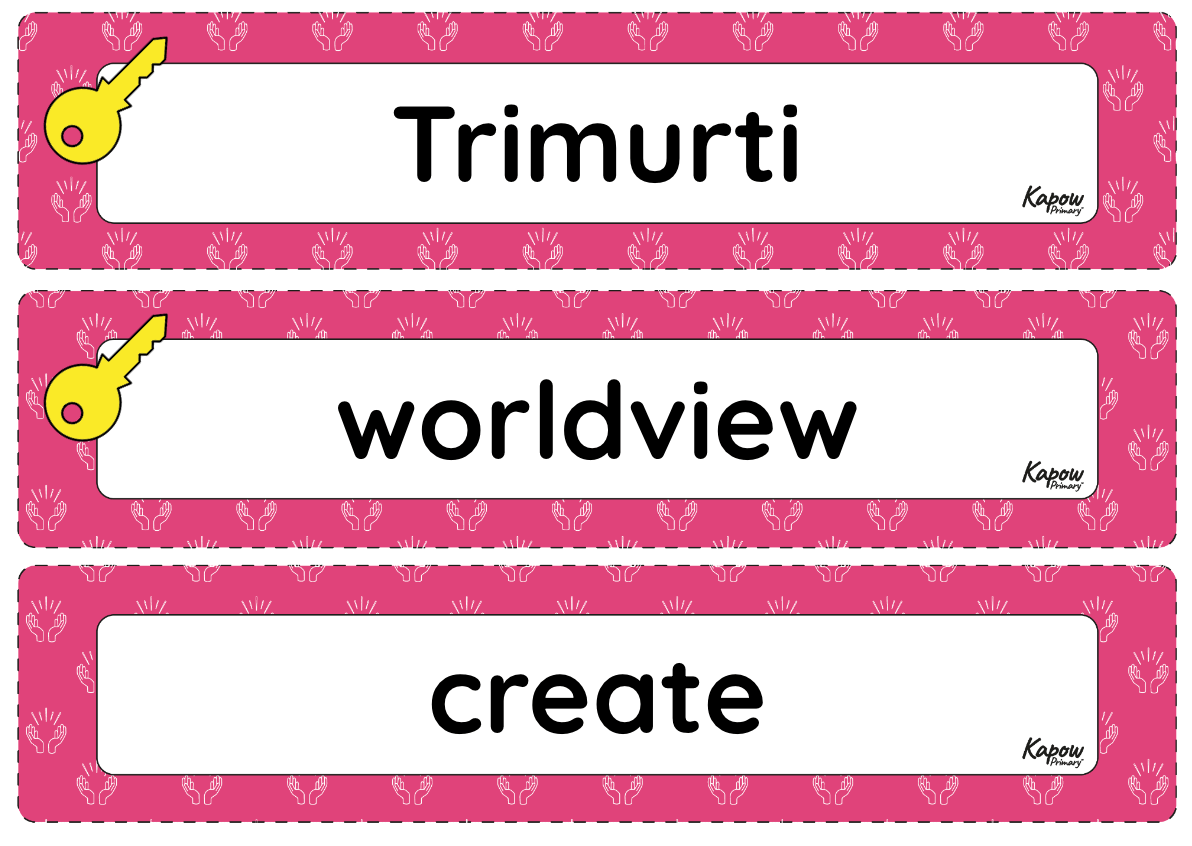
This unit vocabulary display includes keywords from the mixed-age unit Religion and worldviews, Y1/2 (A), What do some people believe God looks like? and additional unit-specific words that may be helpful in a display.
There is also a Key vocabulary – R&W Year 1/2 display, which lists only the keywords from all the Year 3/4 units. Consider displaying relevant keywords from previous years as a reminder for the pupils.
Key vocabulary is clearly labelled on the display, highlighting essential words that the pupils are expected to retain and reuse in future units. Understanding these words enhances comprehension of the subject and supports understanding of prominent organised worldviews.
See the full Religion and worldviews: Progression of key vocabulary.
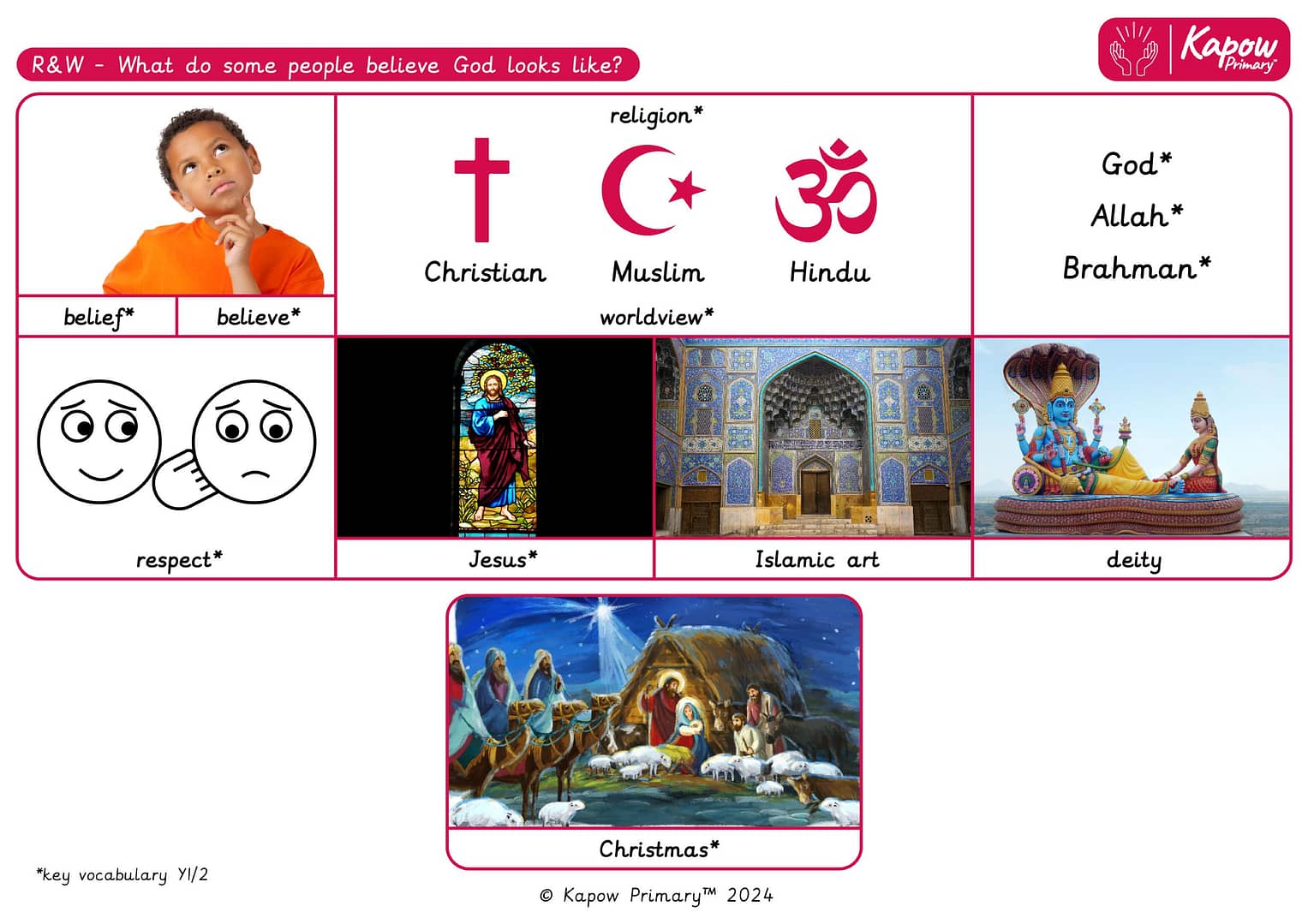
A Knowledge organiser that captures the essential knowledge and skills learnt throughout the mixed-age unit Religion and worldviews, Y1/2 (A), What do some people believe God looks like?
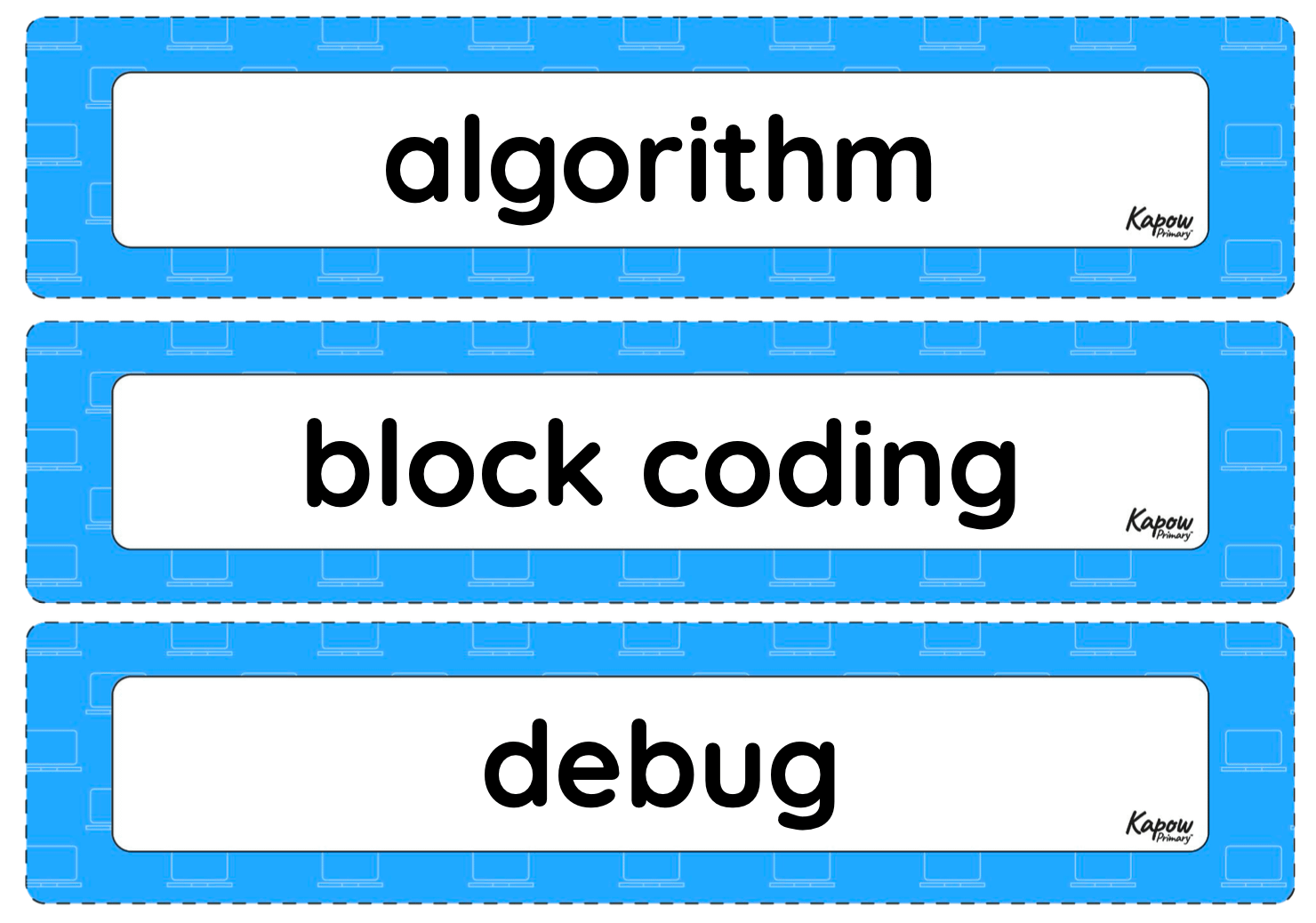
This unit vocabulary display includes keywords from the unit Computing, Year 2, Programming: MakeCode and additional unit-specific words that may be helpful in a display.
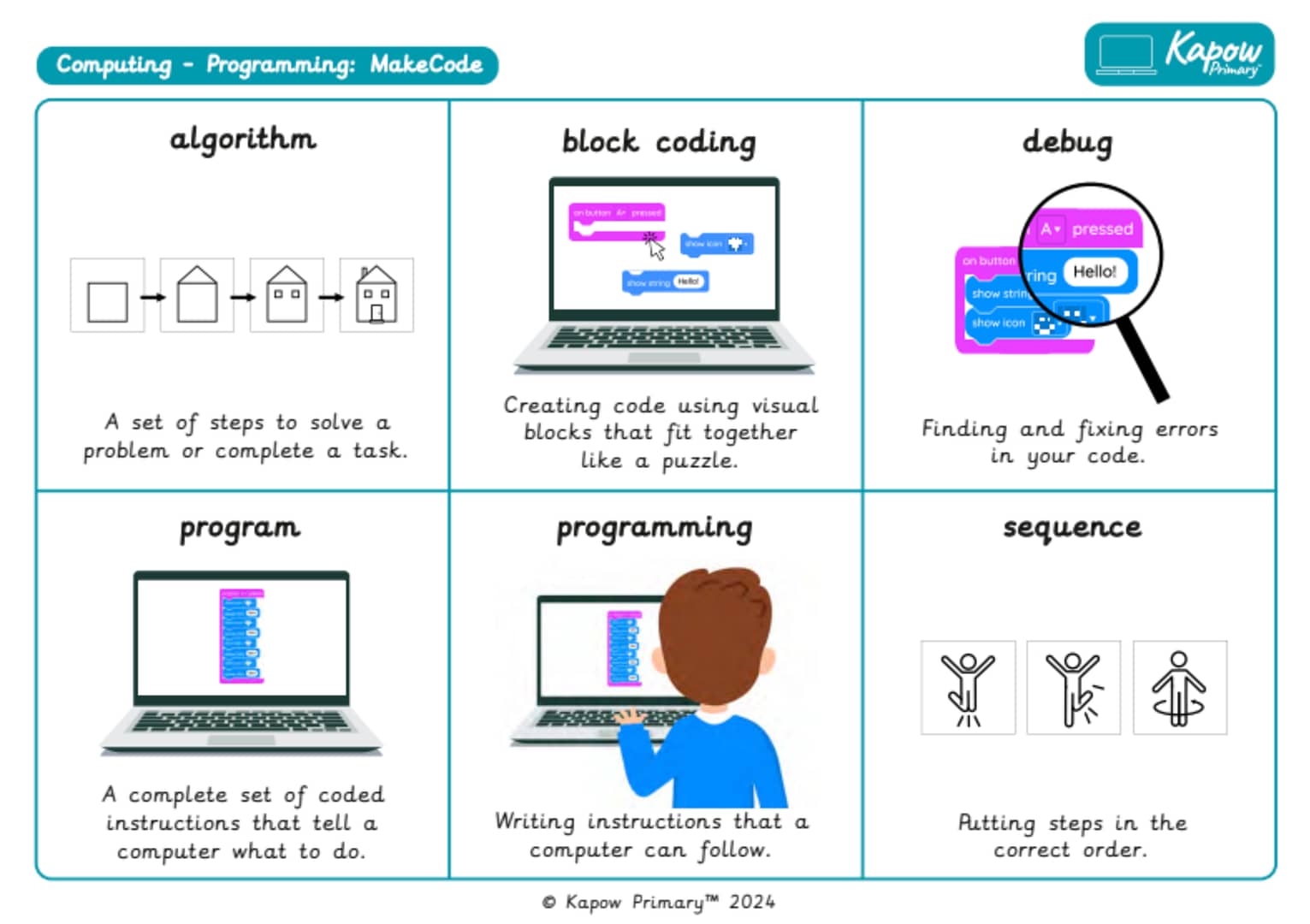
A Knowledge organiser that captures the essential knowledge and skills learnt throughout the unit Computing, Year 2, Programming: MakeCode.
This resource is designed to support the children as they develop their understanding of programming using MakeCode. It introduces key vocabulary and concepts, such as algorithms, block coding and debugging, helping the children build a strong foundation in Computing. The organiser also explores how the BBC micro:bit can be programmed to display patterns and messages, reinforcing essential coding skills. It is perfect for consolidating knowledge and supporting the children as they learn to create, test and debug their own programs.
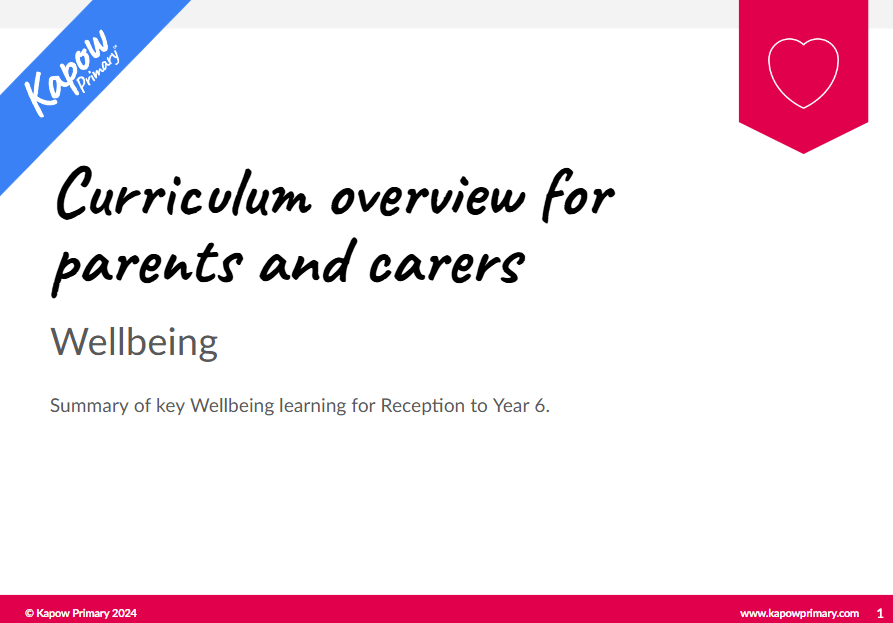
Updated for 24/25!
Post this document on your school website to inform parents and carers about their children’s Wellbeing lesson plans.

Watch our Geography session recording, led by expert Sarah Lawson-Quick, tailored for primary school teachers. Sarah discusses how to use local landmarks, maps, and community data to enrich your lessons and connect pupils with their local surroundings.
Key topics include:
- Integrating local geography into your curriculum
- Connecting pupils with their community
- Tips for effective fieldwork
- Enhancing lessons with Kapow Primary’s Geography curriculum resources
This recording offers practical strategies for teachers seeking to bring their local area into the classroom.
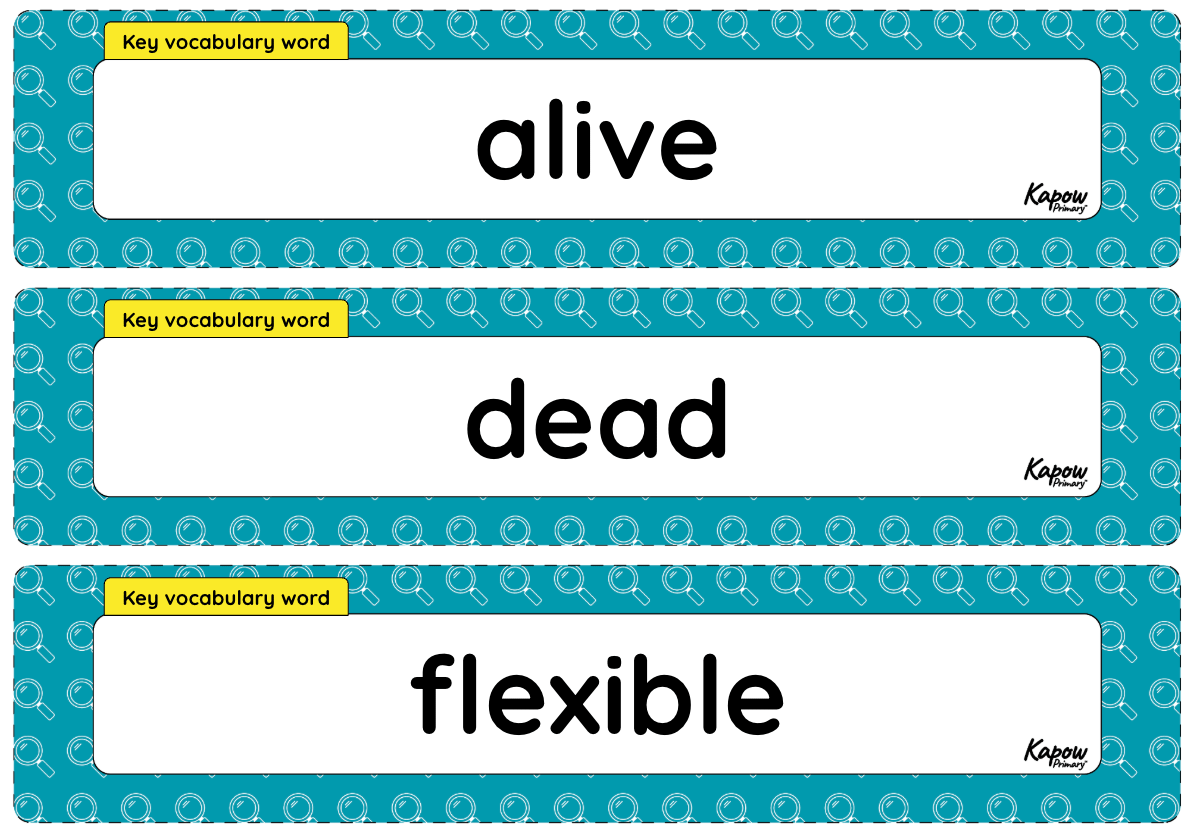
This unit vocabulary display includes key vocabulary from the unit Science, Year 2, Plant-based materials unit and additional unit-specific words.
Key vocabulary is clearly labelled on the display, highlighting essential words that the pupils are expected to retain and reuse in future units. Understanding these words enhances comprehension of the subject and supports understanding of key scientific concepts and processes.
See the full Science: Progression of key vocabulary.
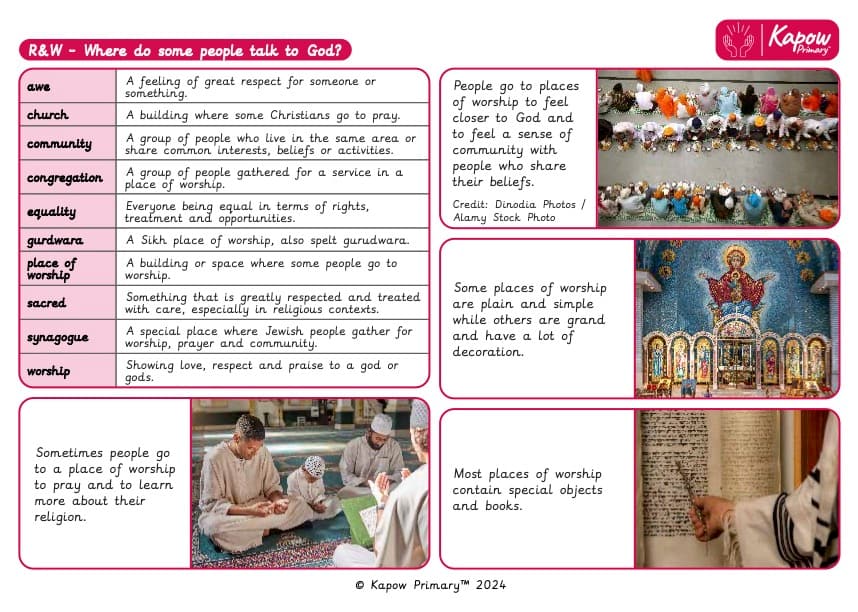
A Knowledge organiser that captures the essential knowledge and skills learnt throughout the unit Religion and Worldviews, Year 2, Where Do Some People Talk to God?
This Religion and Worldviews resource is designed to support the pupils as they explore different places of worship and their significance in religious traditions. It introduces key vocabulary such as temple, mosque, church, prayer, and sacred space, helping the pupils understand how different faiths provide spaces for worship, reflection, and connection with God. The pupils will also learn about the role of religious buildings in communities and how people engage in worship in various settings.








